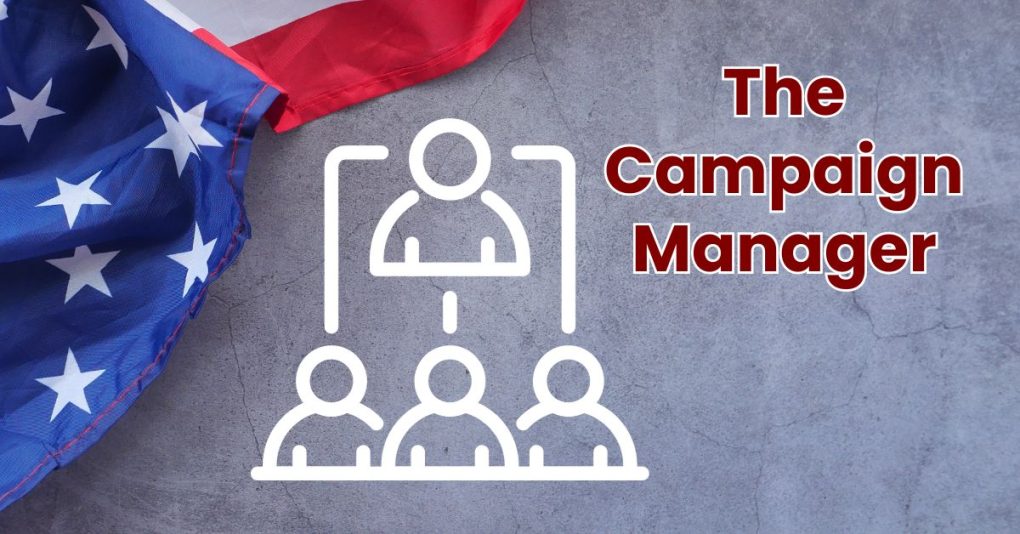This year, there was a candidate in our area who managed everything herself. It was basically a one-person operation. She encountered early problems in organizing volunteers and raising funds. Volunteer interest waned as time went on. The problems continued as the candidate continually refined her message and tried to put together local advertising in the run-up to Election Day.
This candidate had won elections in the past, but in the last few races she did not have a campaign manager.
Unfortunately, she lost both elections.
The moral is: You can’t do it all alone.
The Complexity of Campaigns
Political campaigns, even for local office positions, are not simple. They all combine strategy, fundraising, volunteer organization, voter outreach and everything in between. Handling all these roles by yourself is overwhelming. That’s where a campaign manager comes in. They streamline these complex processes. This lets you focus on what you do best—engaging with voters and fine-tuning your message.
The Role of a Good Political Campaign Manager
A campaign manager has many roles. He or she primarily acts as a conductor, making sure every section of campaign comes in at the right moment. Here’s what else they manage:
- Strategic Planning: They set the overall direction and tactics of the campaign. You might think you know the issues and what voters find important, but an outside perspective can help you make the best decisions on strategy and tactics.
- Fundraising: They oversee the collection of funds. For example, yours might organize a high-profile fundraiser at a local restaurant and help make sure that key donors attend.
- Media Relations: They handle all media communications, particularly in smaller races. They might prepare you for a radio interview and craft press releases.
- Team Leadership: They keep the staff and volunteers moving towards common goals. They could coordinate weekly team meetings to ensure everyone is on track.
- Crisis Management: They solve problems swiftly to keep the campaign on track. For instance, if a negative news story breaks, they quickly devise a response strategy.
In smaller campaigns, managers may even take on the role of a volunteer coordinator. They ensure volunteers are engaged and motivated. It’s always better if someone else, rather than you as the candidate, is organizing training sessions to prepare volunteers.
The Value of Professionalism
A campaign manager adds a layer of professionalism to your campaign. Their expertise in managing detailed operations makes your campaign more effective. Without one, you’re likely missing out on opportunities to run a better campaign – and even risking a possible win.
Even in local campaigns, we’ve seen candidate perform better and more effectively when there is someone to guide the campaign activities and keep the candidate on track. When a candidate tries to run everything themselves, things go sideways – quickly.

In smaller campaigns, managers may even take on the role of a volunteer coordinator.
Choosing the Right Campaign Manager
When you choose a campaign manager, experience is key. Look for someone who has successfully managed campaigns before. They should be adaptable and a strong leader, not just a yes-person. While it may be tempting to hire someone you know, like a friend or relative, a professional is always a better choice.
If you can, hire a professional campaign manager who has previously led a successful campaign. Someone who has done so will bring with them tried-and-true strategies, an objective perspective, and invaluable experience. Someone who is more separated from your team and your issues is more likely to provide the unbiased advice that you’ll need to win.
Conclusion
Every successful campaign is driven by strong leadership, particularly from a skilled campaign manager. Even if you are running for a local position, there are benefits in having real management. They do more than just manage—they elevate your campaign and boost your likelihood of success. Remember, running a campaign is not a solo act. A campaign manager becomes your partner, ensuring everything runs smoothly.
« When Should You Start Campaigning For Your Election?
The Beginners Guide To Building a Political Website »
Tags: local campaigns, supporters and volunteers








